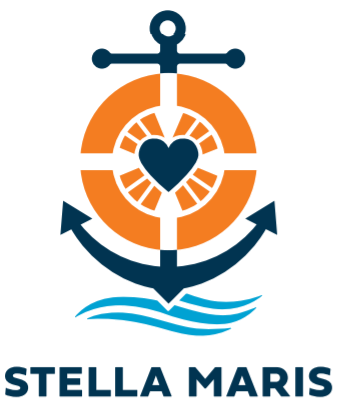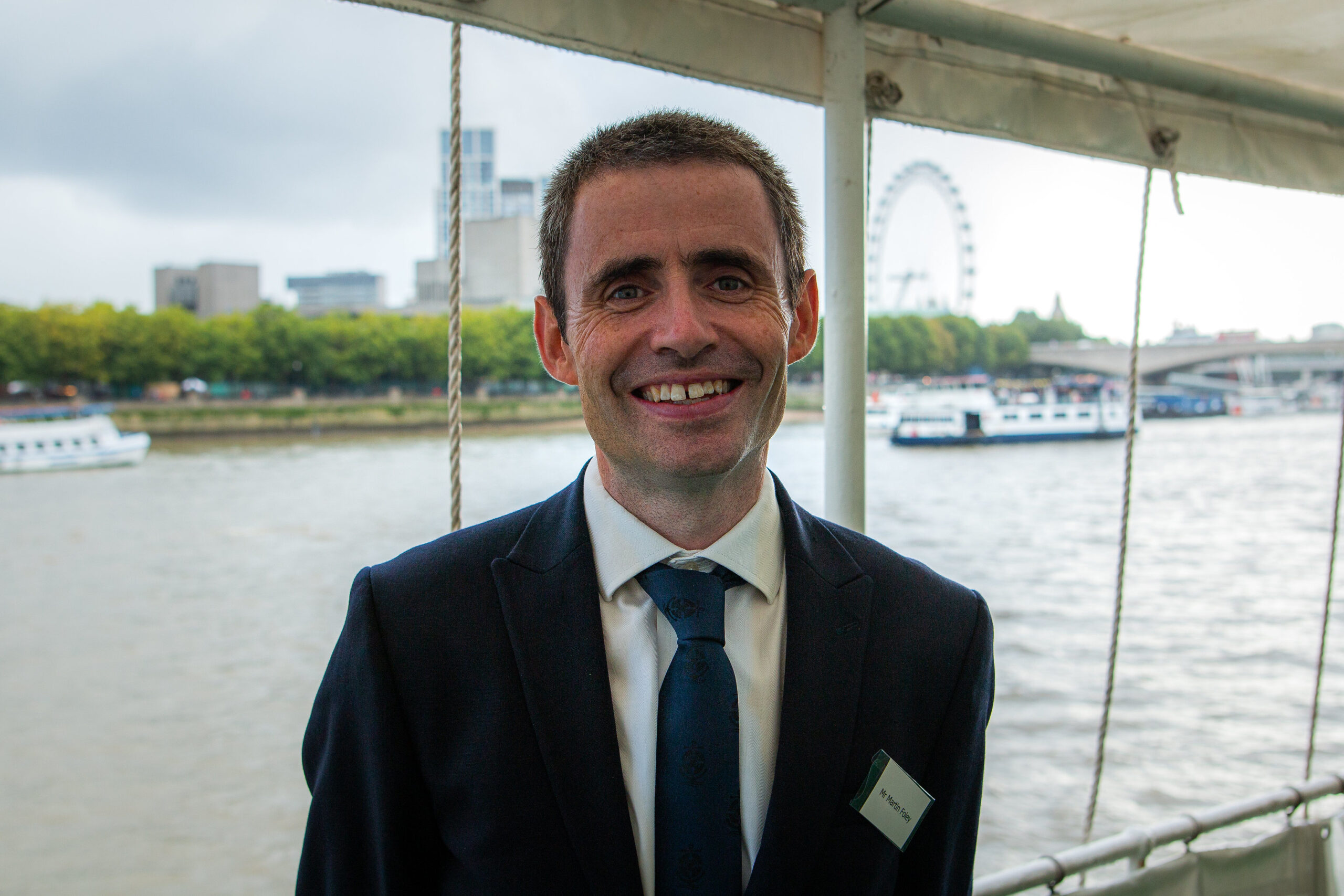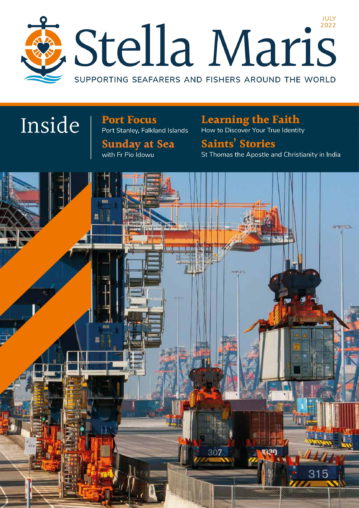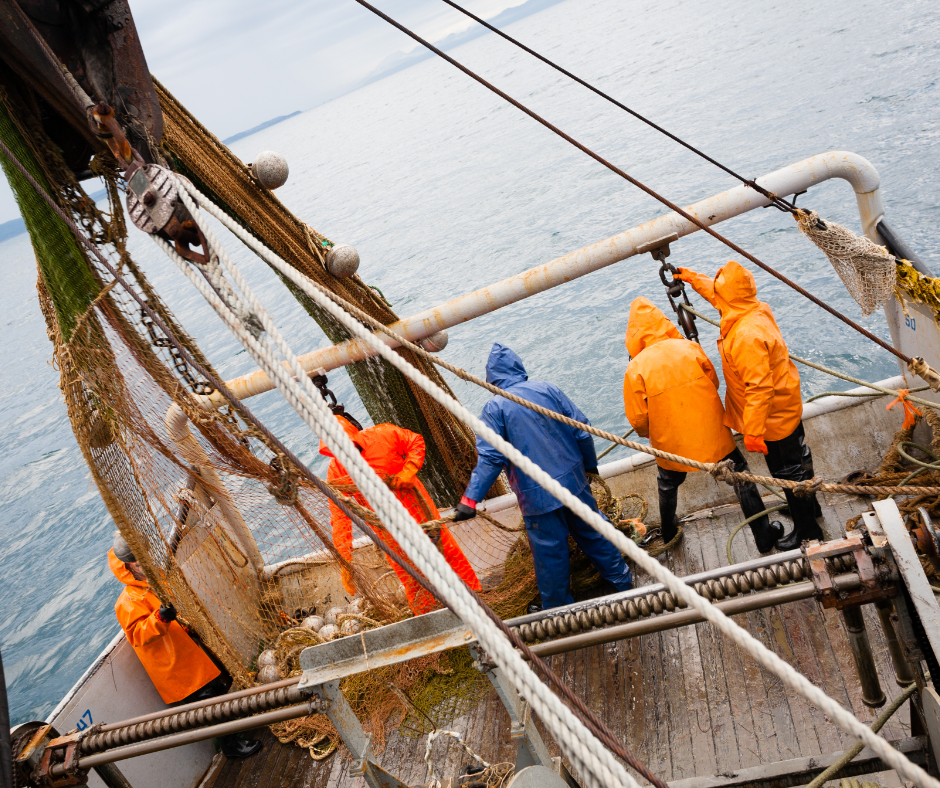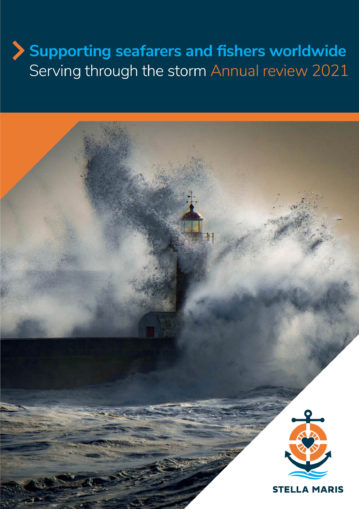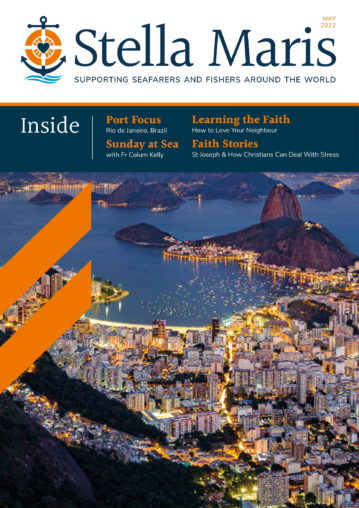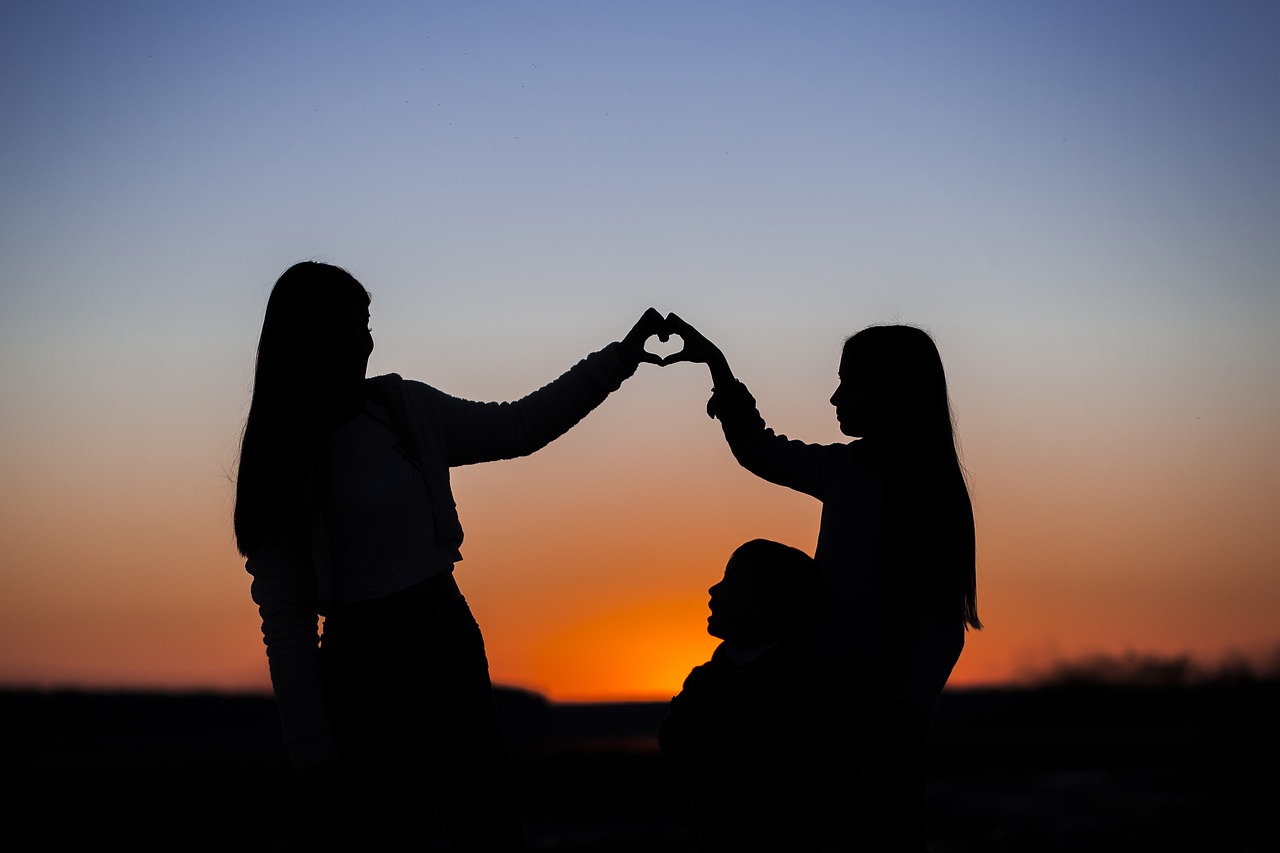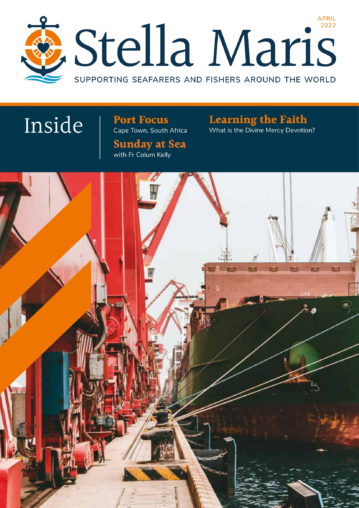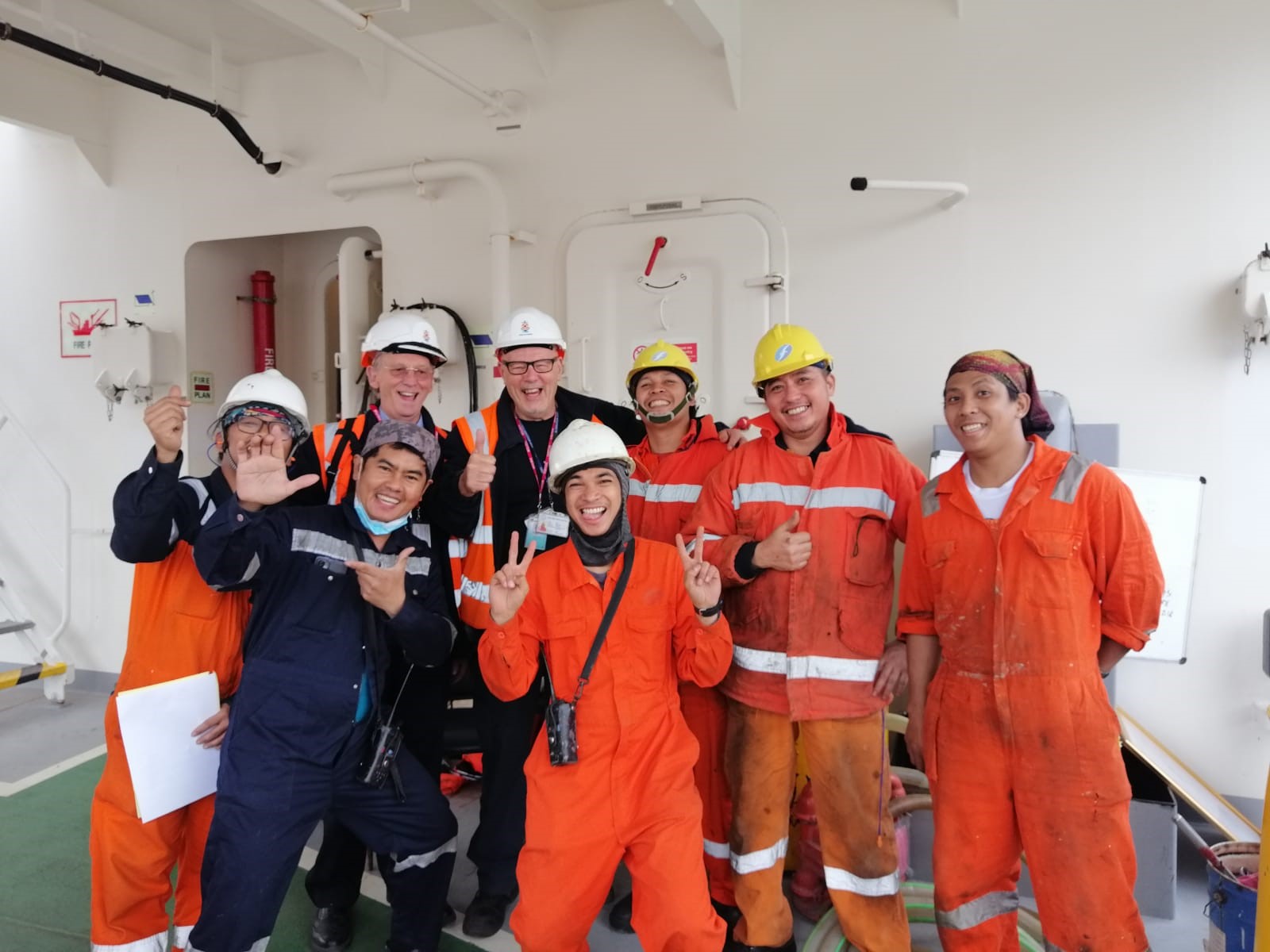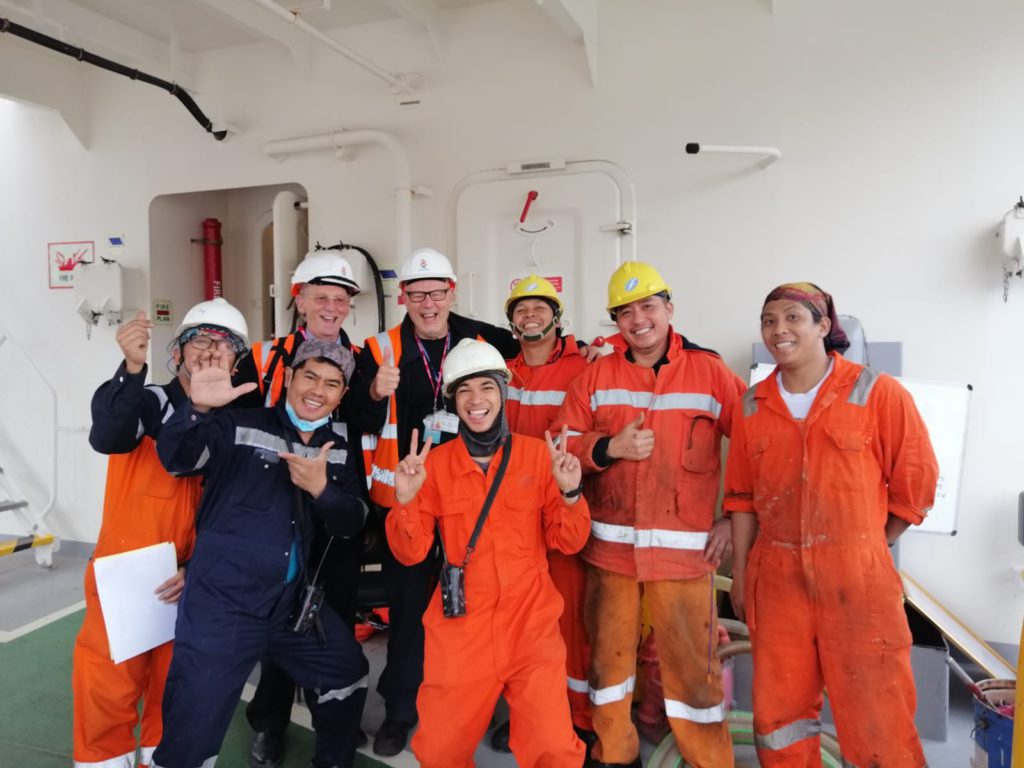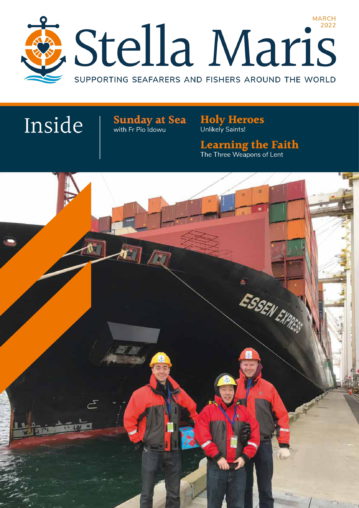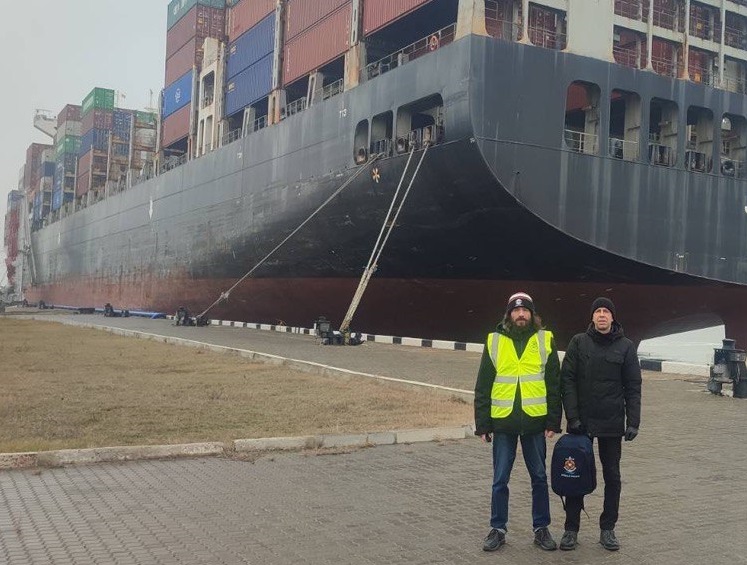
Global maritime charity Stella Maris is pleased to announce that it has resumed regular ship visits in the port of Odesa in war-torn Ukraine, after almost a year of not being able to do so due to security and safety concerns.
On Tuesday, 24th January, the charity’s port chaplain Fr Alexander Smerechynskyy, and assistant chaplain Rostyslav Inzhestoikov, were granted special permission to go on board ships. With a military escort at all times, they were able to pay very welcome visits to seafarers who have been alone on their vessels in Odesa for many long months.
“Rostik and I are delighted that Stella Maris has been granted permission to visit ships once again in the port of Odesa,” said Fr Alexander.
Stella Maris is physically present and actively working in Ukraine to support seafarers and their families.

During the months that they were not allowed to visit ships, Fr Alex and Rostik have been supporting seafarers in many other ways, including ensuring the delivery of food parcels to seafarers trapped on ships in the Black Sea. They have been providing spiritual and pastoral support remotely to Ukrainian seafarers on ships around the world through messages broadcast via social media.
Through Stella Maris’ Centenary Emergency Fund, Fr Alex and Rostik have also been providing tens of thousands of pounds in urgent life-saving grants to hundreds of Ukrainian seafarers and their families in need of immediate assistance as a result of the war.
They also ran a soup kitchen to help families of seafarers in Odesa and helped organise safe places of refuge for Ukrainian seafarers finishing contracts overseas and their families fleeing the country.
Late last year Stella Maris launched a psychological support service for seafarers and their families in Ukraine. The programme provides medium to long-term support from professional psychologists in Ukraine, and delivers remote, ongoing psychological support for those most in need.
Stella Maris is the world’s largest ship-visiting network. The importance of a personal visit from the charity’s chaplains and volunteers, and the impact of the human touch on seafarers’ mental health and wellbeing cannot be over-estimated.
Seafarers, especially those working in conditions of heightened anxiety and stress, appreciate seeing a friendly face, ready to offer support and a listening ear. It reminds seafarers that they are not forgotten amid the horrors of the war.

